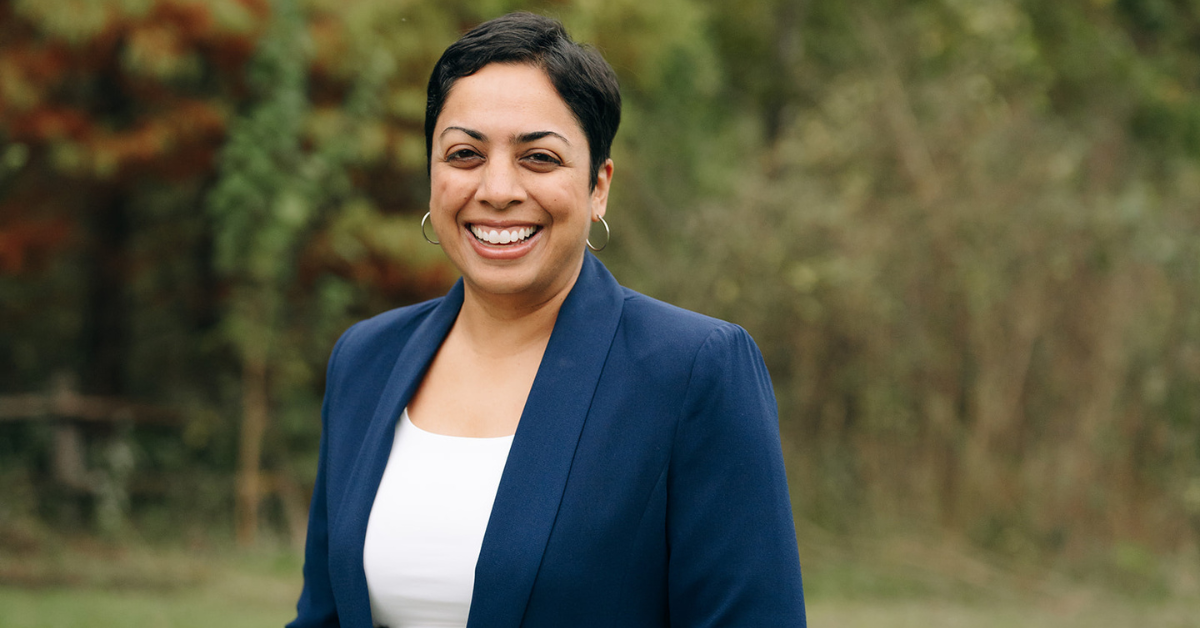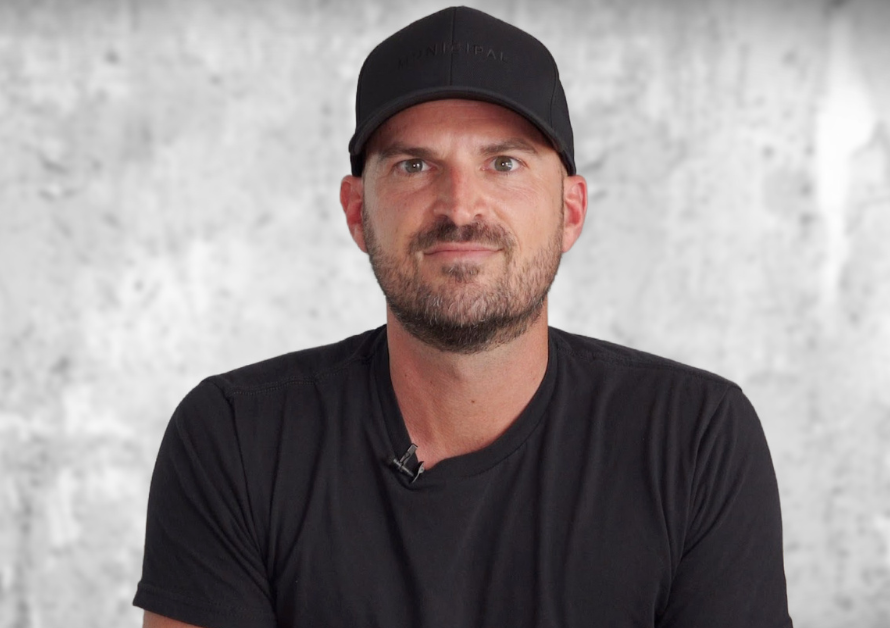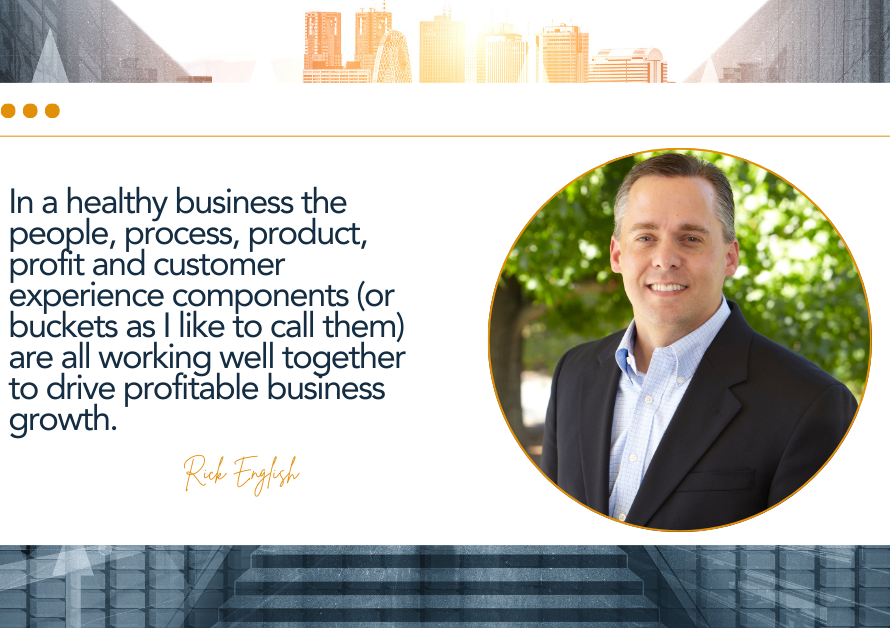Today, we’re excited to have with us Dr. Priya Nalkur, a pioneering psychologist, author, and the visionary founder of the RoundTable Institute. With impressive academic credentials from Harvard and Yale, Dr. Nalkur has dedicated her career to redefining leadership by incorporating allyship and inclusion into leadership. Her recent book, Stumbling Towards Inclusion: Finding Grace in Imperfect Leadership, offers a candid and heartfelt exploration of her own journey—from feeling like an outsider in a small Canadian town to becoming a transformative leader advocating for inclusive workplaces.
At the RoundTable Institute, Dr. Nalkur promotes a leadership philosophy that is as bold as it is human-centered. She champions a culture where leaders are not just about driving results, but also about being unapologetically themselves, embracing vulnerability, and creating brave spaces where everyone’s potential can be unlocked. As an advocate for authenticity and equity, she believes that stumbling and making mistakes are integral parts of growth—both personally and professionally.
In today’s conversation, we will delve into Dr. Nalkur’s unique approach to leadership, the profound impact of inclusivity, and the lessons she’s learned along her journey. Get ready to be inspired by her stories of resilience, courage, and the power of leading with humanity!
Dr. Nalkur, your book Stumbling Towards Inclusion emphasizes the value of making mistakes and learning from them. Can you share a personal experience where you stumbled, and how it shaped your approach to inclusive leadership?
Early in my journey towards understanding diversity, equity, and inclusion, I faced a pivotal moment that reshaped my understanding of leadership. I was still learning how to use my voice effectively, especially in moments that demanded honesty and courage. One afternoon, I was with my manager, who made a comment to a client that struck me as a microaggression. The remark was subtle, but I could feel its sting—a reflection of unconscious bias, woven into words in ways she likely hadn’t intended.
Determined not to remain silent, I addressed it directly on our way home. However, in my insecurity with what felt like a confrontational moment, I used words that set the conversation on fire: “That might have been perceived as racist,” I said. “Racist” is a word that carries weight and emotion, and, understandably, she responded defensively. In trying to address an important issue, I had inadvertently put up a wall between us. Instead of using constructive feedback, I used language that isolated her rather than inviting her into reflection and growth.
That moment became one of my most profound learning experiences. I later came to understand the difference between calling someone out and calling someone in. Calling someone out can be necessary when there’s direct harm—sometimes, it’s the only way to draw a firm boundary. But other times, and especially in moments of unconscious missteps, calling someone in creates an opportunity for empathy, shared understanding, and change without deepening divides.
That day in the taxi, I stumbled. I’d been focused on amplifying the need for inclusivity but overshot, learning the hard way that while our voices are powerful, how we use them determines the impact they leave behind. Now, I practice discernment in how I respond to mistakes, aiming to build bridges rather than barriers. With each conversation, I try to remember that leading inclusively requires patience, empathy, and the ability to offer a hand up—even when we’re tempted to raise a fist.
In learning to wield my voice with care, I discovered that inclusive leadership isn’t about being perfect; it’s about striving to create spaces where we all feel seen, respected, and supported, even when we falter.
You talk a lot about being unapologetically yourself as a leader. In your view, what are some key benefits of leading with authenticity and vulnerability, especially in diverse and inclusive environments?
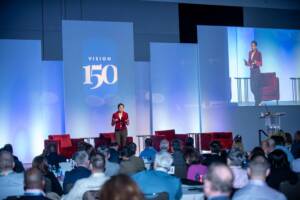
In my experience, leading with authenticity and vulnerability is like flipping on a light in the room—it signals to others that they’re safe to show up as themselves. Vulnerability, especially, is transformative in diverse and inclusive environments because it opens the door to our most creative and groundbreaking ideas. When leaders lead with openness, it sets a tone that encourages everyone to bring forward their most radical, inspired thoughts—the ones that can make real, world-changing impact.
When we feel safe, unguarded, and unafraid of judgment, we operate at our fullest potential. That potential has a contagious quality; as others see what’s possible in a space of trust, they feel emboldened to push their own boundaries, to explore the ideas and aspects of themselves they might usually hold back.
And when we’re authentic, there’s a deep sense of fulfillment that comes from simply showing up as who we are, with nothing to prove and nothing to hide. I believe this is where real self-love and self-belief live. When we see ourselves clearly, with all our potential, we feel capable of truly extraordinary things. Leading authentically not only allows us to realize our full potential, but it also helps us see it mirrored in the people around us, creating an environment where everyone is empowered to live and work at their best.
The RoundTable Institute focuses on customized solutions for clients. How do you tailor your coaching and leadership development programs to meet the unique needs of different organizations?
At the RoundTable Institute, we begin an engagement by immersing ourselves in the unique dynamics of each organization we work with. We meet with a representative group of stakeholders, conducting a series of interviews to uncover their specific needs, challenges, cultural norms, and often-unseen dynamics. This initial stage is vital for us to get an authentic understanding of their world and what drives them.
After gathering this input, we relay our findings back to them in a process we call the ‘fish bowl’ exercise. In this space, we reflect their words and experiences back to them, and the impact is often powerful and unexpected. It’s a moment where people see their organizational culture laid out objectively, and it’s validating—they recognize themselves, both in what’s working well and in areas that need addressing.
Just recently, we worked with a company where this exercise surfaced a key insight: junior team members were reluctant to speak up in meetings due to a fear of being reprimanded for mistakes. They had seen a senior leader criticize a junior colleague, which led them to assume that silence was safer. The senior team members, upon hearing this, were genuinely surprised. They hadn’t realized the unintended impact their actions had on others. Instead of reacting defensively, they asked for a ‘clean slate’ to rebuild trust and open up communication channels.
Together, they then crafted a set of operating principles, including ‘assume positive intent,’ ‘nobody has a monopoly on the truth,’ and ‘balance inquiry with advocacy.’ Since then, they’ve started to foster more open and courageous conversations where everyone feels included. It’s moments like these that remind us of the power of customizing our approach and facilitating a space for honest self-reflection. This process isn’t just about problem-solving; it’s about nurturing sustainable change through understanding, empathy, and the shared goal of a more inclusive culture.
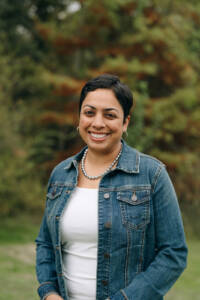 Your journey began in a small Canadian town as an outsider. How did those early experiences influence your passion for diversity, equity, and inclusion, and ultimately, the founding of the RoundTable Institute?
Your journey began in a small Canadian town as an outsider. How did those early experiences influence your passion for diversity, equity, and inclusion, and ultimately, the founding of the RoundTable Institute?
Growing up in Nepean, Ontario, I had a wonderfully safe and grounded childhood, yet being the child of Indian immigrants in a mostly white, Christian neighborhood, I always felt a bit like an outsider. Canada is generally a welcoming place for immigrants, and my family felt safe, yet there was an unspoken understanding that we needed to adjust to our surroundings. Our heritage was something we cherished privately, but to fit in, I often found myself hiding my Indian identity. At times, when it would inevitably surface, I was made to feel ‘othered’—sometimes with jokes or remarks that cast my background as something unclean or unusual. It hurt, but it was the reality I knew, and within my family, we rarely discussed it. After all, my parents had made the courageous choice to leave India and start fresh in a new country, so how could we complain? It felt like a quiet cost of adapting to succeed.
As I grew older, though, I came to understand the value of diversity and multiculturalism. I began forming connections with other Indian kids who shared similar stories, and that gave me a sense of shared belonging. These experiences ignited a responsibility in me—not out of bitterness, but out of a desire to make meaning out of that early pain, to turn it into something positive. I wanted to educate others, myself included, about the strength in our differences and to build spaces where people could feel valued for all they are.
Another pivotal moment came in high school when I heard a motivational speaker who lit something within me. It was the first time I felt truly inspired by someone’s words, and it moved me to want to do the same for others—to uplift them to become their best. Over time, as I developed my career as a leadership coach, the connection between fostering human potential and building diversity, equity, and inclusion became inseparable. I knew that in order to help people thrive, I had to address their identities, experiences, and backgrounds with empathy and respect. And so, the RoundTable Institute was born, rooted in the belief that our unique identities and backgrounds enrich our workplaces and our lives. My work is about creating spaces where everyone feels they belong, because when we feel that sense of belonging, we can access our true potential and inspire others to do the same. Put simply, I want people to love their lives, and to love the work they do and feel that their work is making significant contributions to the world.
You often speak about the importance of creating ‘brave spaces’ in the workplace. What are some practical steps leaders can take to foster such environments, especially in companies that are just beginning their diversity and inclusion journeys?
Creating brave spaces in the workplace starts with leaders who are willing to take the first step in sharing their own stories. Every person has a unique story, and when leaders share theirs with courage and vulnerability, it signals to others that it’s safe to be authentic. Storytelling isn’t just about sharing experiences—it’s a powerful way to connect, to know and understand one another, and to unlock each person’s potential. It’s in these shared stories that we find inspiration, spark new ideas, and gain collective wisdom. Leaders who are interested in understanding and telling their story may find leadership coaching a valuable tool for building this skill.
Another crucial step is to reframe how we think about conflict. Instead of viewing conflict as something to avoid or as a signal of a problem to solve, leaders can embrace it as an opportunity to explore diverse perspectives and drive group potential. Conflict naturally arises in diverse teams, and that’s a strength, not a weakness. But to harness it, leaders and teams need robust conflict resolution skills—not just to reach a decision but to arrive at a place of shared insight and collective growth.
Finally, leaders can make a huge impact by practicing deep listening. Listening is a radical act of inclusion; it’s the path to understanding others and making people feel seen and valued. When leaders listen well, they create an environment where people feel heard, fostering openness, collaboration, and innovative solutions. In this way, listening connects people and cultivates a sense of belonging that helps everyone bring their best to the table.
In today’s rapidly evolving workplace, what do you see as the biggest challenges to achieving truly inclusive leadership, and how can leaders overcome them?
One of the most pressing challenges to truly inclusive leadership is what I call ‘overwork-ism’—the relentless pressure to keep working, often to the detriment of personal well-being. This pressure isn’t always internal; it’s often fueled by external demands or cultural expectations. In my 15 years as a coach and leadership consultant, I’ve seen many clients struggle with this issue. They’re often unable to fully enjoy their work because they feel they can never do enough, or they feel disconnected from a sense of purpose. It’s impossible to love your work if you feel it’s constantly infringing on your personal life. To foster sustainable engagement, leaders need to help their teams set clear personal and professional boundaries, recognizing that a healthy work-life balance is essential for both well-being and productivity.
Another challenge is the generational divide. We have Boomers, Gen X, Millennials, and Gen Z working together, each bringing their unique expectations, values, and communication styles. These differences can be enriching, but they can also lead to miscommunication and frustration. For instance, older generations may feel that Gen Z’s emphasis on mental health and flexibility undermines productivity, while younger generations may see traditional work expectations as rigid or outdated. Leaders can bridge this gap by promoting open dialogue across generations, creating mentorship programs that foster mutual learning, and emphasizing shared values that unify the team.
Finally, social media poses a significant challenge, particularly regarding mental health. While it can be an entertaining escape, excessive social media use can impact focus, motivation, and even self-esteem. For leaders, encouraging mindful use of social media can support team members’ mental health. Providing education on digital wellness, setting healthy boundaries around screen time, and modeling these behaviors themselves are all effective ways to address this issue.
At the core of these challenges is a need for leaders who actively prioritize balance, intergenerational understanding, and well-being. Inclusive leadership means creating environments where people feel good about both their work and personal lives, a balance that ultimately supports engagement, creativity, and connection.
You’ve been described as ‘funny, brilliant, and exceptionally real.’ How do you use humor and authenticity in your presentations to connect with leaders and inspire change?
My humor is self-deprecating, and I try to use it as a warm invitation to connect. It’s a way to lighten the room and remind everyone, including myself, that we’re all wonderfully human. I remember once stepping on stage for a keynote in a brand-new red velvet jacket that I’d been excited to wear. Just before I began, the crew set up for the next session, bringing out a row of plush red velvet sofas that happened to match my jacket exactly. Some people might’ve found that embarrassing, but I decided to lean right into it. I started my talk by saying, ‘I’m Dr. Priya Nalkur, and my jacket matches the sofas on stage—so I guess today is my lucky day!’ That got a good laugh and eased us all into the moment.
In moments like these, a little self-deprecating humor goes a long way. It lets the audience see me as someone who doesn’t take herself too seriously and sets a tone that invites everyone to relax, laugh, and relate. By showing up as my full self—velvet jacket and all—I open the door for others to do the same. This kind of authenticity doesn’t just build rapport; it’s a foundation for deeper connections and genuine inspiration.
Can you discuss a time when a customized solution from the RoundTable Institute led to a significant transformation within an organization? What was the impact of this transformation?
One of the most impactful transformations we’ve guided at the RoundTable Institute started with a call from a CEO in a state of deep concern. He’d just reviewed his company’s engagement survey and was shocked to find low morale among his People of Color, particularly Black employees. The realization hit him hard—his team members felt isolated and misunderstood, and he had no idea how to address it.
Our initial work together involved helping him understand what we call the dynamics ‘under the waterline.’ Beneath the surface of any organization lie the unseen currents: tensions, hidden assumptions, and unspoken stereotypes, along with questions like who gets valued and why. These unspoken factors are rarely addressed directly, yet they significantly shape the company’s culture and influence who feels included or overlooked.
We gathered the leadership team and read the survey results aloud to each other, encouraging them to experience these voices as the organization’s collective voice. In doing so, the team was struck by just how much they weren’t listening or empathizing, despite thinking they’d been doing a good job. This was a turning point: once the ‘waterline’ was lowered, revealing these hidden dynamics, the team was ready to start fresh with new behaviors and mindsets.
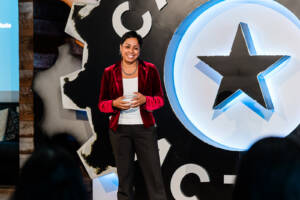 Over the next year, we designed and led an inclusive leadership program that focused on core skills like active listening, managing biases, conflict resolution, and fostering productive feedback. Alongside this, group coaching helped employees recognize their own power to contribute to a healthier culture. As these changes took root, the organization saw a tangible shift in trust and openness. Leaders and team members began having deeper, more empathetic conversations, and a culture of feedback grew, creating a more inclusive and high-performing team. By the end, the transformation was clear—not only did employees feel valued and understood, but they also found greater joy and fulfillment in their work. This journey redefined their culture, and it was an incredible privilege to witness.
Over the next year, we designed and led an inclusive leadership program that focused on core skills like active listening, managing biases, conflict resolution, and fostering productive feedback. Alongside this, group coaching helped employees recognize their own power to contribute to a healthier culture. As these changes took root, the organization saw a tangible shift in trust and openness. Leaders and team members began having deeper, more empathetic conversations, and a culture of feedback grew, creating a more inclusive and high-performing team. By the end, the transformation was clear—not only did employees feel valued and understood, but they also found greater joy and fulfillment in their work. This journey redefined their culture, and it was an incredible privilege to witness.
As someone who balances a busy professional life with family and personal passions, how do you find balance and draw inspiration from your own life experiences?
I draw so much of my inspiration from my two kids—they’re bold, insightful, and never hesitate to challenge or disagree with me. Their honesty keeps me grounded, reminding me to stay open-minded and adaptive, and I’m constantly learning through their perspectives. My daily walks in nature are also a major source of peace and joy; they’ve become a non-negotiable part of my life for both mental and physical health. There’s something deeply centering about being outside, connecting with the world around me, that clears my mind and recharges my energy.
And then there are my wonderful girlfriends—a group that’s truly invaluable. Yes, I have close male friends, but there’s a unique strength in the bond I share with these women. We hold each other up, celebrate each other’s victories, and provide a space to be vulnerable about our struggles. This sisterhood is a source of comfort and strength, one that I cherish deeply.
I also find joy in music and movement, from dancing to singing along with my kids in the car or kitchen—those spontaneous, lighthearted moments bring out my playful spirit. Time with my parents and sister, and the opportunity to connect deeply with friends, colleagues, and clients, keeps me inspired and striving. Every day, I wake up with a sense of purpose and something to look forward to, and that optimism fuels me.
Looking forward, what are your aspirations for the future of the RoundTable Institute, and how do you hope to further impact the landscape of inclusive leadership?
As I look to the future of the RoundTable Institute, my aspirations are bold and expansive. My dream has always been to go global, and I’m thrilled to see that dream coming to fruition as we now serve clients across the world, even beginning to offer our programs in languages other than English.
I want to deepen our connection to nature by creating transformative leadership retreats that blend inspiring travel experiences with adventure, relaxation, and the healing power of the great outdoors. These retreats will not only allow leaders to recharge but also facilitate deep, meaningful connections with one another in a natural setting.
On a personal level, I will focus more on delivering keynotes and talks, while narrowing my attention to one-on-one coaching clients and leadership retreats. Our enterprise-level JEDI (Justice, Equity, Diversity, and Inclusion) Leadership Series will continue to be a cornerstone of our offerings, empowering leaders and coaches around the world to embrace and promote inclusive leadership.
Ultimately, I envision a future where inclusive leadership is not just a goal, but a fundamental part of every organization’s culture, driving change and fostering environments where everyone feels valued and empowered to contribute their unique perspectives.
Thank you for these fantastic insights. We greatly appreciate the time you spent on this.


